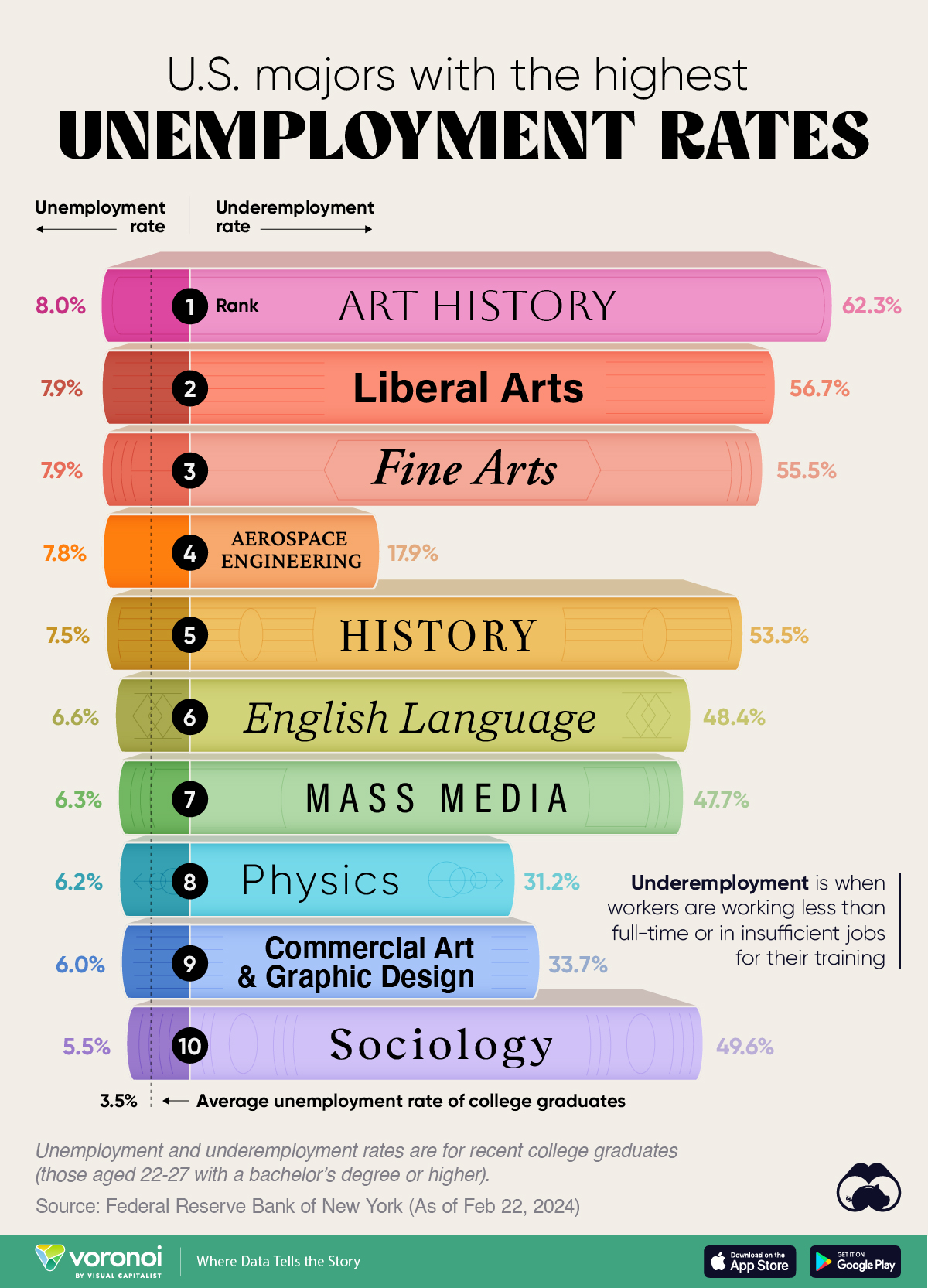What do liberal arts majors do?
Anonymous
|
just chiming in that I'm a hiring manager and would love to see Training On the Job (what a concept!) come back. I'm not hiring entry level right now but would do this if I were. I would sooo much rather have a bright person who can learn than these people who are churned out of school, took a software class but only know how to "do the thing based on specific instructions that I learned in the class" - there's a cohort who cannot THINK.
(can you tell I'm frustrated today  ) )
|
Anonymous
This is key. If I was a first gen college student without any connections, I would hedge and get something practical. That is why elite colleges help lower income students so much more. Whether my DC go to Dartmouth or Dayton, they still have connections through family and friends. |
Anonymous
DP. LOL nothing, variance is key. People intuitively know this even though it's seldom illustrated in cute infographics. |
Anonymous
Or be willing to be resourceful--I know a few GMU kids studying various humanities/social sciences who are really enterprising and seem to find good career opportunities. |
Anonymous
^^^This. My DD attended NCS in DC and played on the varsity team there and is friends with many of her teammates. She went to VATech for Business Information Technology. She had internships after her freshman, sophomore and junior year due to her connections with her NCS teammates whose parents are decision makers. She recently graduated from VATech and received a job offer as an cybersecurity analyst with a Fortune 100 company because the CIO at the company is the father of one of her teammates at NCS. Her VATech friends in BIT major, those without connections, are still looking for jobs. |
Anonymous
Not if you don't want that and therefore aren't likely to do good in it. |
Anonymous
of course, if that's what you want. But that's not the question. OP's question was "What do liberal arts majors do?" The answer, once again, is, for most LA majors, you either get a lower paying job or go to grad school. |
Anonymous
| They become expert learners and have access to alumni networks that will help them become high-earners. DH and I attended elite slacs and have reaped the benefits. Our kids are doing the same. We are full pay at 2 schools that cost over 85k/year and we can easily afford it because our parents did the same for us. IYKYK |
Anonymous
Who gets to decide what is an insufficient position for their training? People who study history don't necessarily do it to become a historian. Likewise for sociology and philosophy, etc. |
Anonymous
And you get a whole team of people who know business operations but didn't get the critical thinking skills that English and Philosophy majors got. They try do do business with countries, people and societies they don't understand. |
Anonymous
Everyone is conflating the school/reputation with OP's question. I gather even you would be concerned if your kid was going to a school ranked 200+ and was majoring in say history. Also, every elite SLAC offers STEM degrees, so attending an elite SLAC does not mean you majored in liberal arts. |
Anonymous
If I could do it over I would want logic and ethics courses, etc. from the philosophy dept., literature to understand human nature and develop writing skills, psychology to learn how people think, history for research and understanding how we got here, communications, so many things that would serve me throughout my life. |
Anonymous
? STEM majors take those types of classes, too. |
Anonymous
So.. you have family money. |
Anonymous
Just a news flash...guess what is becoming one of the most popular majors at elite SLACS...yes, you guessed it...computer science. I believe Claremont McKenna had to start limiting kids taking CS classes because they didn't have enough professors to satisfy the number of kids trying to take them. Caused a big outrage with students and parents. |

